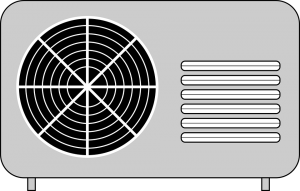The Summer of Our Never-Ending Heat
I recently wrote about design thinking as demonstrated by a landscaping company. In another home-ownership scenario, I recently experienced what happens when there is a lack of systems thinking, a close relative to design thinking.
When we turned our air conditioner on this year, the thermostat displayed a “call for service” message. Which we did, reaching out to a company that has done annual check-ups on both our furnace and air conditioner for several years.
The first technician who showed up, let’s call him Joe, followed typical steps. He looked at the thermostat, the central HVAC unit, and then proceeded outside to the air conditioner condenser unit. After a time, I observed him on the phone, where he stayed for a LONG time. After about two hours of effort, Joe informed us the circuit board to the condenser was faulty, and that he would need to order a new one.
His company then informed us they wanted to send a more experienced technician out, to make sure the point(s) of failure were correctly identified. The second technician, let’s call him Ethan, followed essentially the same steps as Joe, including the long telephone conversation. He then informed me that there were two possible points of failure, either the compressor or a blockage in the coolant line. He said he had been on the phone with the manufacturer, who had walked him through the diagnostic process. Furthermore, Ethan said, it was a unit that is rare in the industry, and quite frankly he thought we should use the manufacturer’s service people.
Summer is upon us, and still no air conditioning.
A phone call to a local service office for the manufacturer. A third technician, shall we call him Donovan. Same protocol as the other two. Donovan concludes it is the compressor that is faulty. His company orders one…
A week-long wait, and technician number four, whom we shall call André, proudly arrives with the compressor, installs it, then tests the system. It fails. André concludes the remaining failure is in the circuit board (remember what Joe had to say?), and his company orders one.
Summer is more fervently upon us, and still no air conditioning.
Harvey, technician number five, arrives bearing the circuit board. He cheerfully installs it, and turns the unit on. And promptly burns out the brand-new circuit board. Because the harness between the compressor and the circuit board is faulty.
Summer is hotter. Still no air conditioning.
Now, I know nothing about air conditioning units, and have only a conceptual understanding of the electrical side of things. So, I invite those of you who are savvy about the details to enlighten me. If my thinking is faulty in what I say in the rest of this post, call me on it!
Let’s ignore the process(es) Joe, Ethan and Donovan followed, and start with André. He has just installed a brand-new compressor. He has furthermore diagnosed a problem in an electrical component within the same overall system. Does it not make sense that he would want to ensure no other components have failures?
A systems thinking approach would have looked at “how the thing being studied interacts with the other constituents of the system.”
We all live and work within systems. Families, neighborhoods, professional communities, etc. As an educator, my teaching/learning environment is a system.
Our students also exist in a variety of systems, one of the most important being their school system. As the Waters Foundation states:
“It is a growing priority to encourage educators to develop and apply their own systems thinking capacity to teaching and learning. Our future depends on the preparation efforts of today. Children will need to have the skills and knowledge necessary to manage the complex problems they will ultimately inherit.”
In part two, I’ll explore systems and design thinking in a PBL environment.
Oh, yeah, when Harvey returned with (another) circuit board and a new harness and installed them… the air conditioning system worked. Hurrah!

